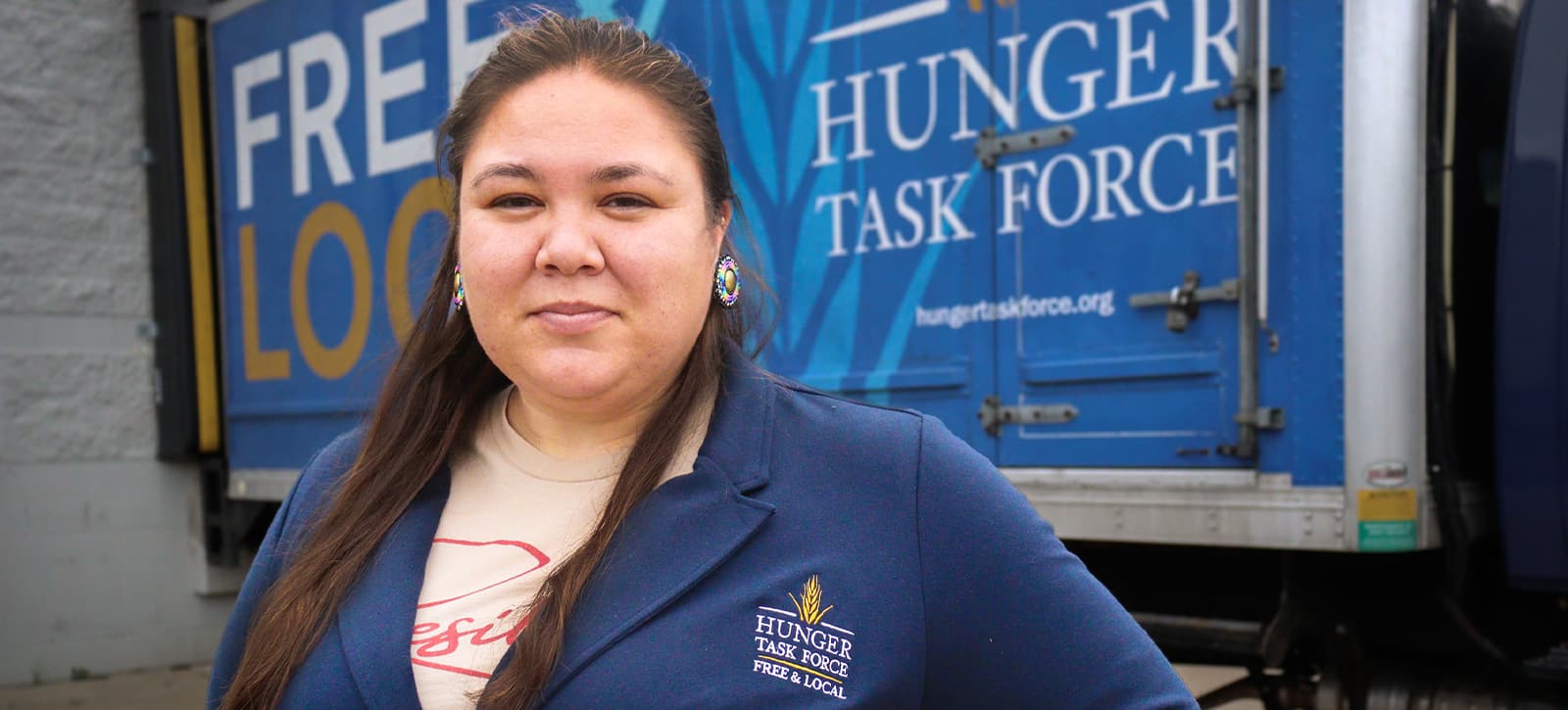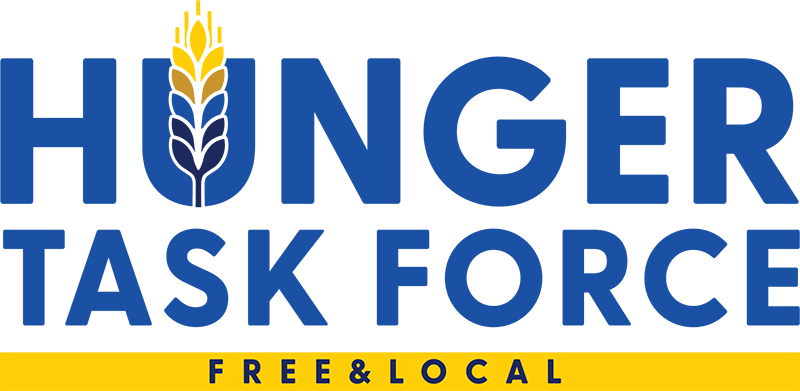Hunger Task Force honors Indigenous Peoples’ Day: Casey Gott reflects on family heritage
Casey Gott has been working to end hunger with Hunger Task Force since April 2021. Growing up in Milwaukee, Gott acknowledged she knew of the anti-hunger leader before joining as staff. “As long as I can remember, Hunger Task Force has always had a powerful presence in the community. We all knew about the good work happening there.”
Gott continues, “My father and his family are members of the Sapotaweyak Cree Nation. Our reservation is in Pelican Rapids, a community in the Canadian providence of Manitoba.” Gott’s father, Patrick, moved to Wisconsin to work at a summer camp in the 1980s. “It’s where my mom was working, that’s how they met.” While her mother, Carrie, is not an Indigenous person, Gott’s parents made it a priority to connect Gott, and her brother Logan, with the Native communities in Milwaukee and across Wisconsin.
Gott came to Hunger Task Force with a background in non-profit work at a variety of mission-driven organizations. Most recently, she worked as a substitute teacher at the Indian Community School (ICS), a private, faith-based school serving approximately 361 intertribal American Indian students from fifteen different Tribal backgrounds. The Indian Community School also happened to be where Casey attended kindergarten through eighth grade.
Prior to her role as substitute teacher at ICS, Gott spent time in high school volunteering at the Indian Community School supporting the Families and School Together Program (FAST), a national parent engagement program working to build communication skills within families. This experience, along with summers working at the same camp her parents met, led Gott down a path of advocacy and direct service work.
“I remember starting and learning about the Hunger Relief Federation and partnerships with Tribal Nations across Wisconsin. I vividly remember being so pleased that Hunger Task Force was already supporting Indigenous people – I was very, very impressed.”
Hired on the Hunger Task Force ACCESS Team, staff dedicated to assist seniors, families, and individuals apply for FoodShare benefits, Gott began primarily working alongside members of the Oneida and Ho Chunk tribes in Milwaukee. “I know that those relationships can be difficult to build. There is a lot of distrust, but the work that we are doing is respectful and well received by these communities.”
Hunger Task Force has a history of supporting Tribal Nations and has prioritized access to culturally appropriate food and programs for indigenous communities through the Hunger Relief Federation. Today, membership in the federation includes 133 organizations, representing all 72 Wisconsin counties and 11 Tribal Nations.
On Friday, October 8, President Joe Biden issued a proclamation naming October 11 Indigenous Peoples’ Day. This decision follows the Executive Order from Governor Tony Evers recognizing Indigenous Peoples’ Day from 2019. “It’s a huge step,” says Gott, “but it’s still just that – a step. There are still so many things that the government, organizations, and our own communities need to do each day to work towards reconciliation.”

